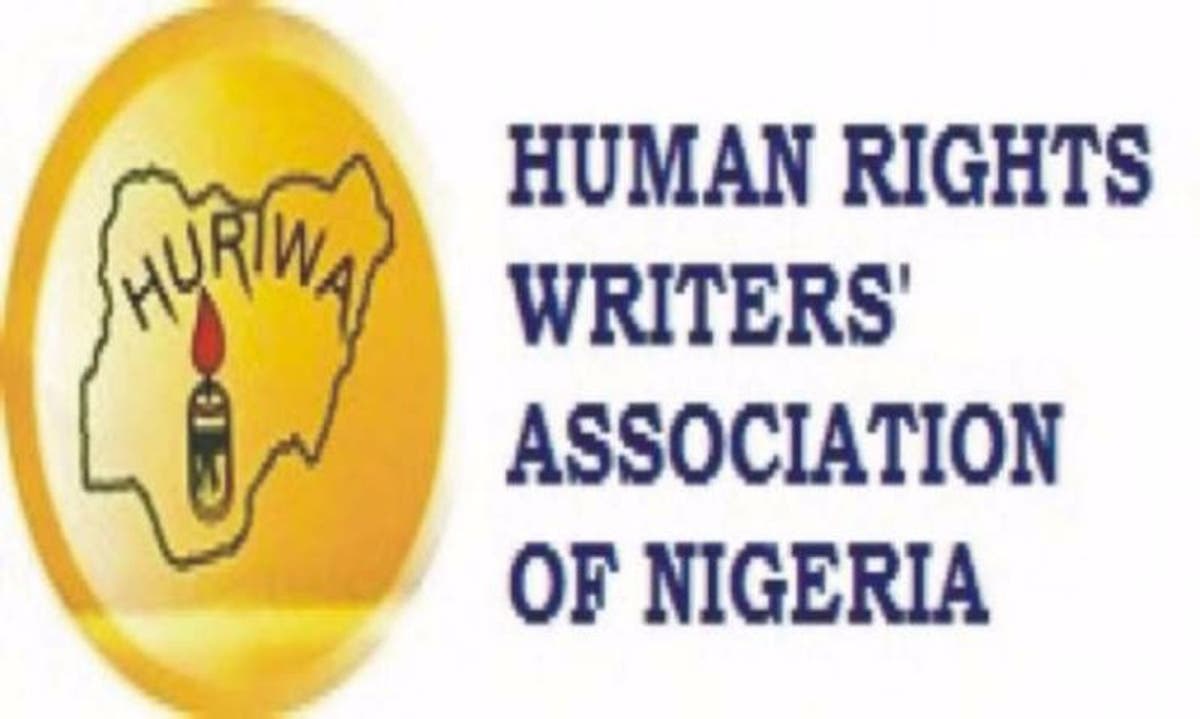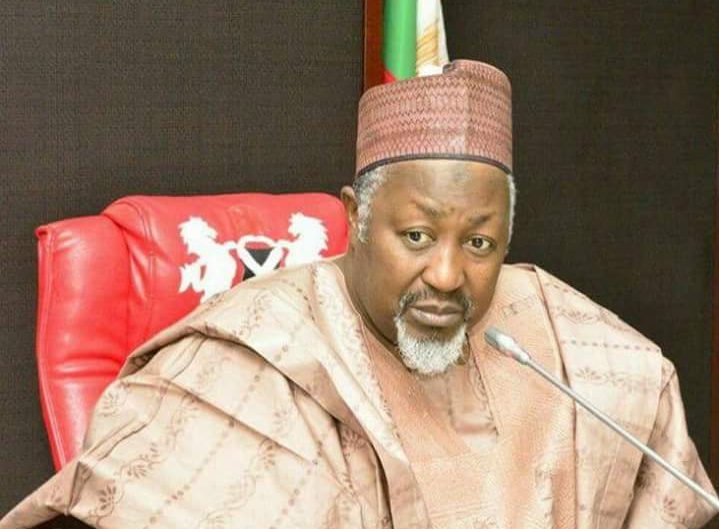The Human Rights Writers Association of Nigeria, HURIWA on Thursday, backed the Attorney General of the Federation, Abubakar Malami on the decision of the Federal Government to engage in political means of resolving the secession agitations across the country.
DAILY POST recalls that Malami, on Wednesday, said the FG is open to all kinds of considerations as part of efforts to resolve the crisis surrounding Nnamdi Kanu, leader of the Indigenous People of Biafra, IPOB, and Yoruba Nation activist, Sunday Igboho.
Malami made this known on Wednesday, in a chat with select journalists in Abuja, but insisted that criminal conduct would never go unpunished.
He was responding to a question on whether the current administration was not disposed to a political solution to the cases of Kanu and Igboho, as being canvassed by some leaders and other stakeholders.
The AGF said the government has been using the amnesty policy to tackle some security challenges in the country and as such, the possibility of a political solution cannot be ruled out.
Malami spoke on other issues including the current controversy between the federal government and the Nigeria Governors Forum (NGF), the international arbitration involving Nigeria and Process and Industrial Development (P& ID) company on one hand and Sunflower firm over the Mambila power projects on the other.
When asked whether the federal government is not disposed to a political solution to the cases of Kanu and Igboho, as being canvassed by some leaders and other stakeholders in the country, Malami noted that although such consideration is not yet on the table, but would not mind taking a shot at it once there is an approach on how to go about it.
“As far as the security situation is concerned and as far as governance and this administration is concerned, you cannot rule out all possibilities”, he said, adding that, “But then there has to be an approach for government to consider.”
He, however, explained that he cannot be preemptive at this stage by stating clearly and outrightly that reconciliation is being considered without an approach being made.
According to him, it is the approach if at all any was made that the government “will look into for the purpose of looking at its weight, the authenticity of it, the good faith associated with it and then bring about the considerable factors relating to the negotiations or otherwise.
“So it is not a conclusion that one can outrightly make without juxtaposing associated facts relating to the reconciliation. There has to be an approach and then a counter consideration.”
Malami added that no approach in that respect is on the table for consideration yet, but it is something the government may take a shot at when it gets to that stage.
“So no approach in that respect is on the table for consideration yet. So we’ll cross the bridge when eventually we get to that; when perhaps a type of request is made, we’ll consider,” he said.
Reacting to his position, HURIWA in a statement by its National Coordinator, Emmanuel Onwubiko Malamli’s said the proposed solution is practicable.
The statement reads, “The suggestion by the Hon Attorney General of the Federation Alhaji Abubakar Malami (SAN) that it is possible to reach a political solution with the IPOB and other agitators for self-determination is a welcome development.
“To begin with, it is not a crime for a citizen to agitate for self-determination because self-determination is captured under International law.
“The principle of self-determination is prominently embodied in Article I of the Charter of the United Nations. …All peoples have the right to self-determination.
“By virtue of that right, they freely determine their political status and freely pursue their economic, social and cultural development.
“The International Covenant on Civil and Political Rights (ICCPR) is a multilateral treaty adopted by United Nations General Assembly Resolution 2200A (XXI) on 16 December 1966, and in force from 23 March 1976 in accordance with Article 49 of the covenant. Article 49 allowed that the covenant would enter into force three months after the date of the deposit of the thirty-fifth instrument of ratification or accession.
“The covenant commits its parties to respect the civil and political rights of individuals, including the right to life, freedom of religion, freedom of speech, freedom of assembly, electoral rights and rights to due process and a fair trial.[3] As of September 2019, the Covenant has 173 parties and six more signatories without ratification.[1] Notable holdouts are the People’s Republic of China and Cuba. North Korea tried to withdraw.
“Under International Covenant on Civil and Political Rights.
Part 1 (Article 1) recognizes the right of all peoples to self-determination, including the right to “freely determine their political status”,[11] pursue their economic, social and cultural goals, and manage and dispose of their own resources.
“It recognises a negative right of a people not to be deprived of its means of subsistence,[12] and imposes an obligation on those parties still responsible for non-self-governing and trust territories (colonies) to encourage and respect their self-determination.
“[13] From the above International Laws domesticated in Nigeria, it is obvious that the detention of Nnamdi Kanu is illegal. So in essence what the Nigerian minister of Justice has just stated is a practicable and pragmatic solution to the expanding frontiers of social upheavals in the South East of Nigeria.
“The killings in the South East have no reason to continue if the man is released because the reason for his arrest is illegal. HURIWA condemns all kinds of bloodshed by state and non-state actors.
“If a political solution is found through constructive negotiation and immediate freedom of Nnamdi Kanu and thousands of his members including pregnant women are freed, HUMAN RIGHTS WRITERS ASSOCIATION OF NIGERIA believes that this step will restore lasting peace.
“If they are released, Mr. President will not become not just a statesman but an international statesman.
“Because there is nothing wrong with any citizen saying that he/she does not want to be a citizen anymore. Under this current constitution, a Nigerian Citizen not below the universal adult age of 18 is afforded the constitutional right to renounce citizenship.
“Prospective applicants who desire to renounce their Nigerian citizenship should note that the power to approve renunciation/restoration of Nigerian citizenship is the sole prerogative of Mr. President, as enshrined in Chapter III, Article 29, sub. Section 1-2, of the 1999 Constitution of the Federal Republic of Nigeria.
“Accordingly, the Nigerian Mission abroad only facilitates the application but does not hold the ultimate decision.
“While the federal government has been involved in a legal battle with Nnamdi Kanu in Nigeria, it is battling to extradite Igboho from the Benin Republic to face criminal charges.
“Both Kanu and Igboho have been in the forefront of agitations for a breakaway from Nigeria.
“The government in fresh charges filed against Kanu last month at the Abuja Division of the Federal High Court had linked him with the wanton destruction of lives and properties as well as attacks on security operatives and government infrastructure in the south-east of Nigeria.
“However, some leaders from the two geopolitical zones have been urging for a political solution to the crisis”.
The Rights group called on “Mr President to set up a national committee made up of tested and trusted Nigerians to coordinate the quick intervention to reach a political truce that would lead to the granting of freedom to all detained self-determination agitators.






2 Comments